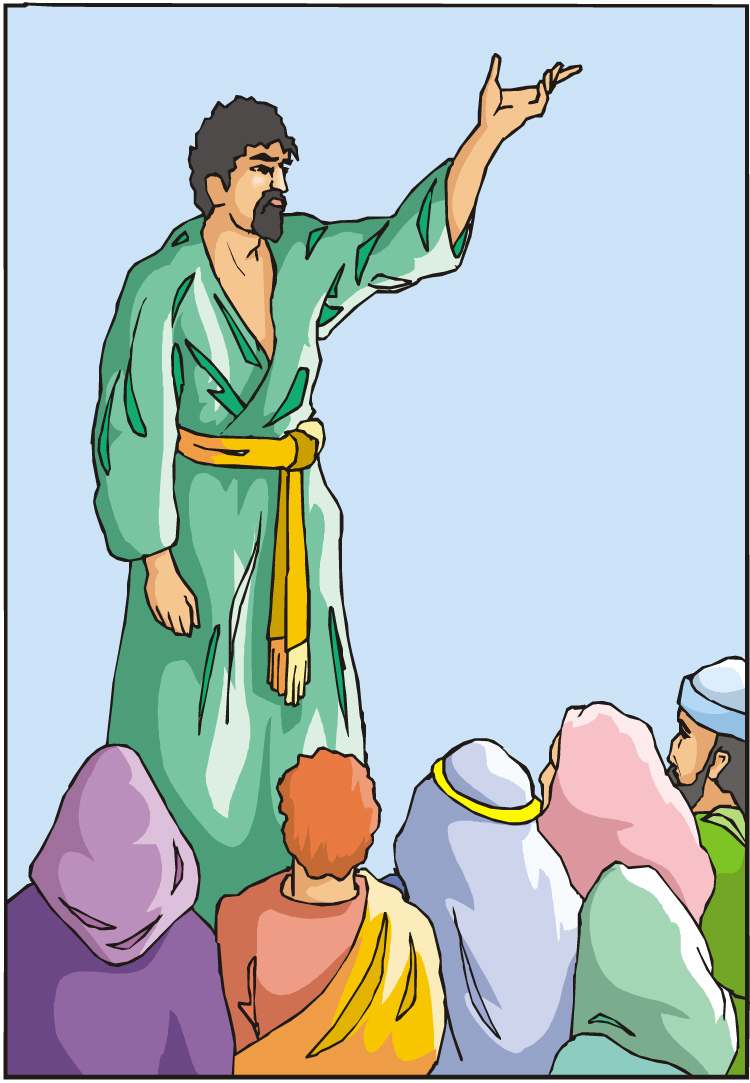
Matthew 28:19–20, Go therefore. What were Yeshua’s final instructions to his disciples before his return to heaven? This portion of Scripture is commonly called, the Great Commission and is found in Matthew 28:19-20. Do we find here any clues to Yeshua’s view toward the Torah as to what his expectations were of his disciples? Here Yeshua instructs his disciples (that includes you and me) to:
Go you therefore, and teach all nations, baptizing them in the name of the Father, and of the Son, and of the Set-Apart Spirit: teaching them to observe [keep, preserve, hold fast] all things whatsoever I have commanded you: and, lo, I am with you always, even unto the end of the world. Amein.
It is clear from this text that Yeshua, a Jewish rabbi (Matt 26:25, 49; Mark. 9:5; 10:51; 11:21; 14:45; John 1:38, 49; 3:2, 26, 4:31; 6:25; 9:2; 11:8), expected his disciples to follow, teach accurately and spread his teachings (the good news of the kingdom of Elohim) to the world. In the religious culture of first century, Judaism disciples (talmudim) were expected to teach exactly what their Torah teachers had taught them. This is no different in our day when students enroll in a denominational Bible college or seminary, receive ordination and are then sent out into the mission field in the name of that denomination. The students are expected to carry forth the unique teachings and doctrines of that denomination. If they do not, they will either be reprimanded and expected to realign their teachings with the denomination’s official position. If they refuse to do so, that denomination will discharge them from their duties and defrock them.
Likewise, Yeshua expected his disciples to teach the nations to “observe all things whatsoever I have commanded you.” In fact, in Acts 1:8 Yeshua said to his disciples that, “You shall be witnesses unto me” to the whole world. This was their mission and assignment. Yeshua, as did all Jews of his era, spoke Hebrew, and maybe even Aramaic. The word for “commanded” (Matt 28:20) as in “whatsoever I have commanded you …” in the Hebrew would be the word tsavah from which the word mitzvah or commandment (as in Torah commandments) derives. If Yeshua were speaking Hebrew, mitzvah or mitzvot (plural)would have been the same word used in Matthew 5:19 where Yeshua says, “whosoever breaks one of these least commandments, and shall teach men so, he shall be called least in the kingdom of heaven …” (emphasis added). The word mitzvah in Hebraic religious thought is a clear reference to the Torah commandments of YHVH in the books of the Law of Moses. David uses the term mitzvah (in its plural form mitzvot) numerous times in Psalm 119 equating it with the Torah-law of Elohim as given to Moses and the children of Israel. It was these same commandments (mitzvot) that Yeshua stated in the Sermon on the Mount that he told his disciples to “think not” that he had come to destroy,, that he taught would never pass away as long as heaven and earth stood, that he said whoever would break one of the least of them and teach men so would be called least in the kingdom of heaven, and whoever would keep them and teach men so would be called the greatest in the kingdom. It was these same commandments that Yeshua commissioned his disciples to teach and observe, to keep, hold fast and preserve.
Even in his final word to his disciples before his death, Yeshua commanded his disciples to adhere to the Torah and to convey to those who would follow them the same message.
Can there be any doubt as to what Yeshua’s view of the Torah was, and what his expectations were for his disciples in this regard? How is it that the church has diverged so greatly from the fundamental teachings of Yeshua and his disciples when so many teach that he and his disciples came to “do away with the law?” It has been admitted, by even some in the church, that Christianity is not the religion of Jesus or Yeshua, but rather the religion about the Person of Jesus or Yeshua. For Christianity to be fully the religion of Yeshua and his early disciples, it would have to uphold that obedience to the Torah’s standards of righteous living is a requirement of Christians today.
The Great Commission: The ABC’s of Gospel Evangelism
Continue reading






